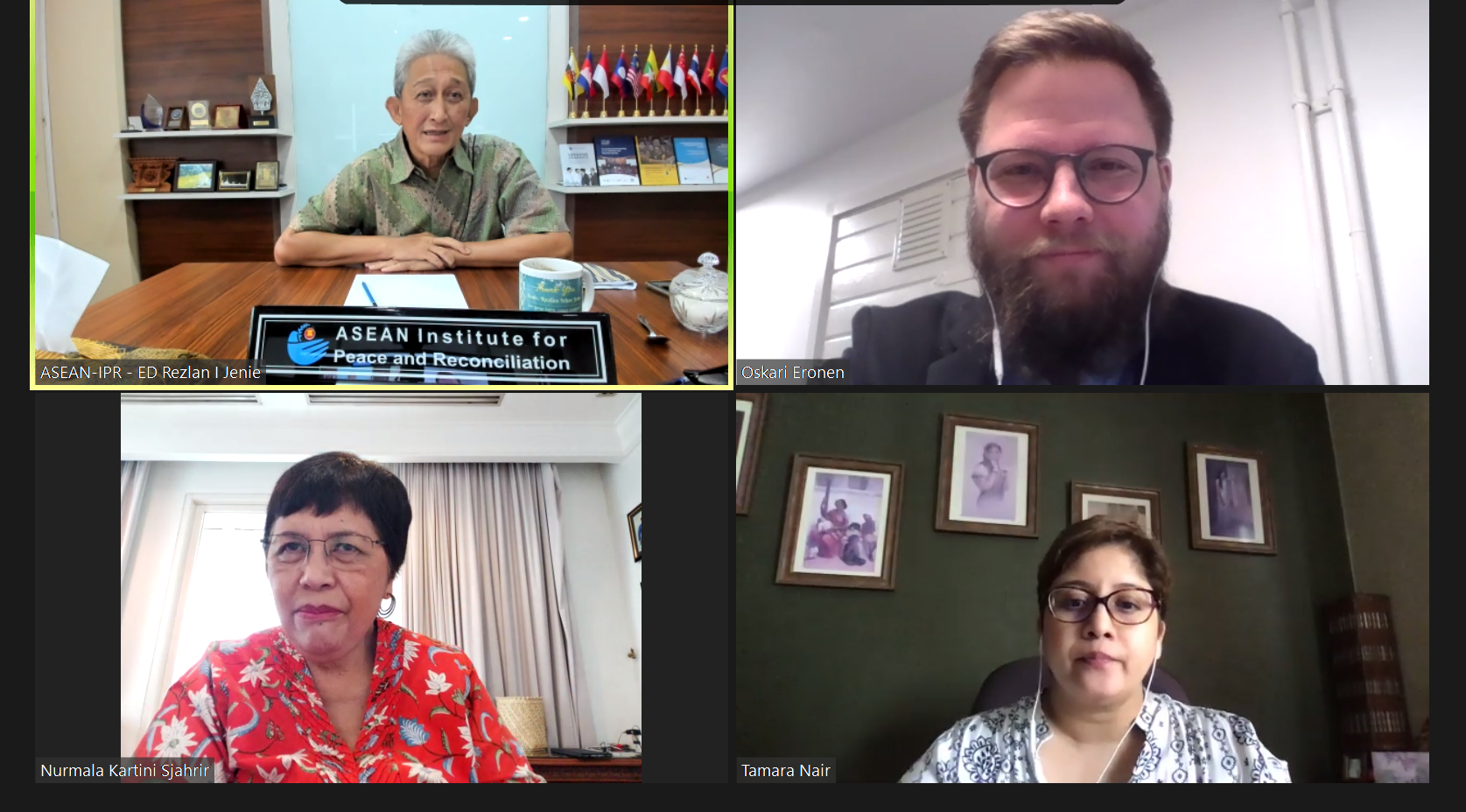ASEAN-IPR Discussion Series: Climate Change and Peace
ASEAN-IPR UPDATE
ASEAN INSTITUTE FOR PEACE AND RECONCILIATION DISCUSSION SERIES:
CLIMATE CHANGE AND PEACE
Friday, 9 October 2020
The ASEAN Institute for Peace and Reconciliation (ASEAN-IPR) convened a Webinar on 9 October 2020, taking on the theme “Climate Change and Peace.” This Webinar is the fourth part of the ASEAN-IPR Discussion Series that brought together participants coming from ASEAN Member States, ASEAN bodies/sectoral bodies/entities, ASEAN’s partners, civil society groups, as well as other stakeholders – whether through the Webinar platform, or through the Institute’s YouTube Channel.
The theme of the Webinar aims to discuss how climate change brings challenges to sustainable development that subsequently affects the process of peacebuilding. The discussion also extends to how policies and efforts of peacebuilding need to adapt to the effects of climate change in order to curve or minimise its challenges and prevent escalation to conflict.
The discussion was moderated by H.E. Nurmala Kartini Sjahrir, the Indonesian Representative in the Advisory Board (AB) of the ASEAN-IPR. Two Speakers shared their views on the topic: Dr. Tamara Nair, a Member of the ASEAN Women for Peace Registry (AWPR) from Singapore, and Mr. Oskari Eronen, Head of Asia Programme of Crisis Management Initiative (CMI) in Helsinki, Finland.
The Speakers discussed how climate change poses a multiplier of threats both directly and indirectly as it not only has the potential of altering physical spaces, but it could potentially affect political landscapes that may exacerbates existing conflict situations by creating complex emergencies which then give rise to a humanitarian crisis on a massive scale, such as gender-based marginalisation and large-scale movement of people.
In the context of linking between climate change and peace and security, Dr. Tamara Nair emphasised the need to move away from the militarised understanding of peace and security. Instead, it is equally important to view peace and security from the angle of human security to understand how climate change is linked. This is because new forms of insecurities are created by climate change, for example, disruption to food production, health security, economic security and the governance of public health. By viewing the issue from the angle of human security, it is then possible to position other actors, especially women, in a centre role to establish and maintaining peace and stability amidst the changing landscape brought by climate change.
Mr. Oskari Eronen emphasised the importance to involve local actors and gender inclusion in response to climate change. In addition, water diplomacy could also provide the ground opportunity, acting as a diplomatic tool in itself and as a start of other modes of cooperation in promoting cross-country and regional cooperation.
For full view of the Webinar, please visit ASEAN-IPR’s YouTube Channel, or refer to the following link: http://tiny.cc/asean-iprwebinarseries. The fifth and final part of the Discussion Series is scheduled for Friday, 30 October 2020, with the topic of “Empowering Women and Youth in Building Sustainable Peace”.
Be sure to subscribe to the ASEAN-IPR’s YouTube Channel, and follow our social media for latest information and/or updates on our activities.
*******

